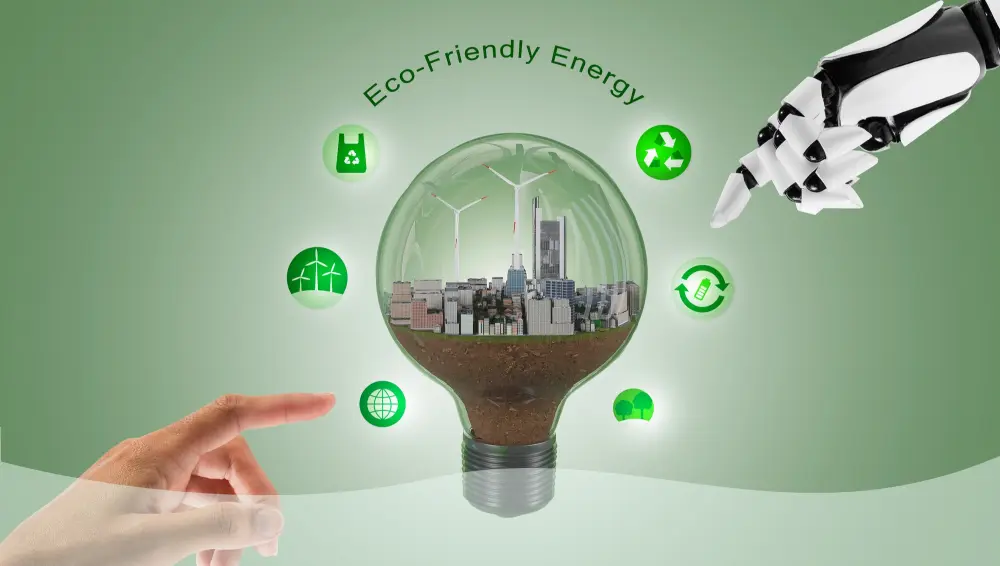How to Implement an Effective GHG Reduction Plan
A GHG Reduction Plan is a strategic framework designed to help organizations minimize their carbon footprint and contribute to environmental sustainability. Trinity excels in crafting tailored GHG Reduction Plans by using our expertise to create strategies with industry best practices and optimize carbon reduction initiatives. We take part in collaborative engagement and work closely with organizations for effective implementation of sustainable measures and the achievement of meaningful environmental impact goals.
The key elements of a GHG Reduction Plan typically include:
- Assessment
- Goal Setting
- Customization
- Technology Integration
- Renewable Energy Solutions
- Waste Management Strategies
- Stakeholder Engagement
- Monitoring and Reporting
- Compliance and Regulations
- Communication Strategy




What are greenhouse gases, and why do we need to reduce them?
Greenhouse Gasses (GHG) trap heat In the earth’s atmosphere that leads to the greenhouse effect, global warming, and climate change. Carbon dioxide and methane, mainly from human activities like burning fossil fuels, significantly impact the environment. Businesses, organizations, and governments must reduce their carbon footprint in order to create a sustainable future. Tracking and measuring GHG emissions through advanced monitoring and reporting allow effective management and reduction strategies.
- Identify and pinpoint greenhouse gas emission hotspots or leaks within operations.
- Develop and implement effective reduction practices based on comprehensive data analysis.
- Serve as a credible third-party data source for generating annual sustainability reports, catering to the needs of investors and regulators.
- Demonstrate a strong commitment to sustainability and environmental responsibility through transparent and data-backed practices.
GHG Reduction Programs & Strategies
A diverse range of strategies exists to assist organizations in mitigating their greenhouse gas (GHG) emissions. Provided here is a compilation of resources and guides designed to help your organization in discerning and executing opportunities for GHG reduction.


Initial Assessment
Conduct a thorough review of the organization’s current operations, energy consumption, and sustainability practices.

Regulatory Compliance Analysis
Assess the organization’s adherence to environmental regulations and recommend adjustments to match with compliance standards.

Customized Strategy Development
Customize a GHG Reduction Plan that considers the organization’s unique characteristics, industry context, and sustainability objectives.

Technology and Innovation Integration
Identify and integrate cutting-edge technologies and innovations to enhance the efficiency and effectiveness of GHG reduction efforts.

Cost-Benefit Analysis
Conduct a thorough analysis of the costs associated with implementing GHG reduction measures, providing insights into potential long-term benefits.

Implementation Support
Offer ongoing support during the implementation phase, addressing challenges and establishing a consistent integration of sustainable practices.

Monitoring and Evaluation Framework
Establish a framework for continuous monitoring and evaluation to track the progress of GHG reduction initiatives.

Communication Strategy
Develop a clear communication plan to transparently convey the organization’s commitment to GHG reduction to both internal and external stakeholders.

Performance Metrics
Define key performance indicators (KPIs) to measure and assess the success of GHG reduction initiatives, facilitating continuous improvement.
- Our Impact
Recommendations for Reducing Greenhouse Gas Emissions
Effective management of greenhouse gasses demands a holistic strategy. The accompanying illustration emphasizes the importance of not only minimizing carbon emissions but also intensifying efforts across various fronts to genuinely tackle the climate emergency.


- ELIMINATE
Trinity promotes sustainable growth by integrating GHG prevention into business decisions and models.
- REDUCE
We enhance operational and energy efficiency using technology for significant, sustainable carbon reductions.
- SUBSTITUTE
We champion renewable technologies and low-carbon materials to decrease overall GHG emissions.
- COMPENSATE
We guide compensating unavoidable emissions through offsets, land management, and carbon market engagement.
- Explore our related services
Greenhouse Gas Reduction and Zero Carbon Strategy Services

GHG Assessment
Evaluate and quantify an organization’s greenhouse gas emissions through data analysis, providing a baseline for informed sustainability decisions.

GHG Reduction Plan
Develop a tailored strategy to minimize emissions, incorporating energy-efficient technologies and sustainable practices to align business operations with environmental responsibility.

Net Zero Plan
Create a comprehensive roadmap for achieving net-zero carbon emissions, combining renewable energy adoption, enhanced efficiency, carbon capture, and offset projects to contribute to global climate goals.
Ready to Transform Your Carbon Footprint?
Discover the Power of Green Solutions with Our Greenhouse Gas Reduction and Zero Carbon Strategy Services.
Take the first step towards a sustainable future today.


